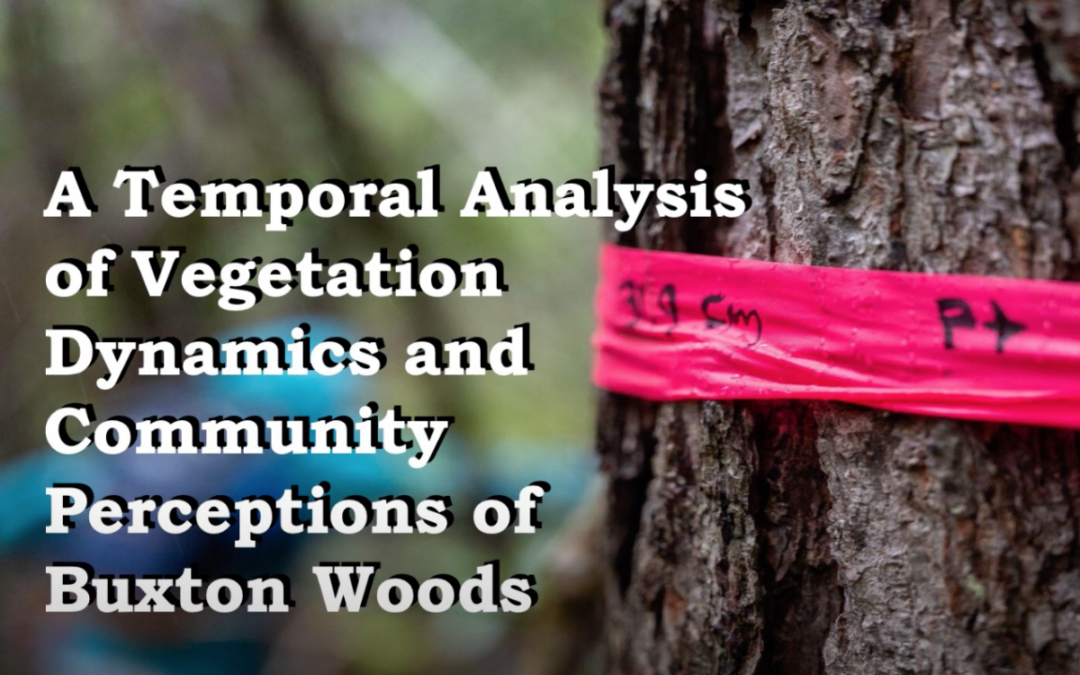The Outer Banks Field Site is a semester-long, interdisciplinary residential learning experience for UNC-Chapel Hill undergraduate students hosted by the Coastal Studies Institute (CSI) on the East Carolina University (ECU) Outer Banks Campus. Each fall, students from the UNC Institute for the Environment spend a semester at the OBXFS where they take classes, engage in internships, and complete a Capstone research project.
Early this semester, the eleven students of the 2021 OBXFS cohort were introduced to the focus of their research- the Buxton Woods Coastal Reserve. As their project developed, they focused on two key questions. First, what are the uses, values, and perceptions of change in Buxton Woods, NC among stakeholders and nearby residents? And second, has the vegetative community structure and composition in historical plots in Buxton Woods changed in the last three decades? To answer these questions, the students collected ecological and environmental data to compare to data collected in 1988 and spoke with local residents to investigate the type, extent, rates, and reasons for change and variability within this relatively resilient and protected coastal social-ecological system.
Before participating in the OBXFS program, some of the students had not conducted research in the field before. “It was my first time doing fieldwork so it was an exciting experience that I was looking forward to. It was interesting to see the methods that went into finding the plots and collecting the data, and despite some of the challenges we faced such as bugs and being cold and wet, I enjoyed the experience. I learned a lot from [our leaders]… and I was impressed with how much knowledge they had of the area.”, reflects Joseph Lopez-Hernandez.
The following recorded presentation, “A temporal analysis of vegetation dynamics and community perceptions of Buxton Woods”, highlights the students’ research methods, findings, and experiences in the field. The program was held on December 2, 2021, at the Fessenden Center in Buxton, NC, where the public was invited to attend and encouraged to ask questions.



 Based at the Coastal Studies Institute (CSI), the North Carolina Renewable Ocean Energy Program (NCROEP) advances inter-disciplinary marine energy solutions across UNC System partner colleges of engineering at NC State University, UNC Charlotte, and NC A&T University. Click on the links below for more information.
Based at the Coastal Studies Institute (CSI), the North Carolina Renewable Ocean Energy Program (NCROEP) advances inter-disciplinary marine energy solutions across UNC System partner colleges of engineering at NC State University, UNC Charlotte, and NC A&T University. Click on the links below for more information. ECU's Integrated Coastal Programs (ECU ICP) is a leader in coastal and marine research, education, and engagement. ECU ICP includes the Coastal Studies Institute, ECU's Department of Coastal Studies, and ECU Diving and Water Safety.
ECU's Integrated Coastal Programs (ECU ICP) is a leader in coastal and marine research, education, and engagement. ECU ICP includes the Coastal Studies Institute, ECU's Department of Coastal Studies, and ECU Diving and Water Safety. The ECU Outer Banks campus is home to the Coastal Studies Institute.
The ECU Outer Banks campus is home to the Coastal Studies Institute.

